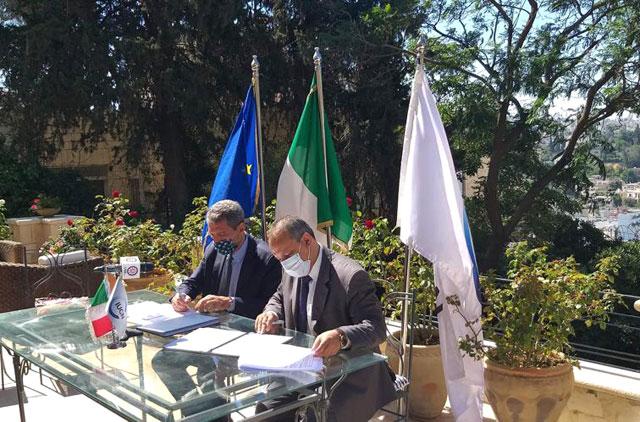- Local News
- Tue-2020-06-30 | 04:41 pm

The Italian Government and the International Union for the Conservation of Nature (IUCN) signed a grant agreement at the Italian embassy on Monday to fund a two-year sustainable agriculture project with a budget of 1 million euros.
The project is a collaboration between the Italian Ministry of Foreign Affairs and International Cooperation, the IUCN and the Italian Agency for Development Cooperation.
Titled "Strengthening the Livelihood and Food Security of the Host Community and Syrian Refugees through the Development of Sustainable Agricultural Practises”, the project aims to contribute to improving the livelihoods of vulnerable Jordanians and Syrian refugees, according to Italian Ambassador to Jordan Fabio Cassese.
Cassese said in an interview with The Jordan Times that the agricultural sector is of "particular importance to Italy”, as highlighted in the most recent visit by Italy’s President Sergio Mattarella to Jordan and later stressed during his meeting with His Majesty King Abdullah.
"We think that Italy has something to offer Jordan in this sector, as we have ample experience with agricultural practices, from cultivation to the marketing of finished products,” he added.
Implemented in Irbid and Mafraq, the project aims to "adopt natural-based solutions to agricultural and community programs”, said Regional Director of the IUCN Hany Al Shaer.
According to Shaer, the project operates on two distinct levels: The local community and, indirectly, the local government.
Ambassador Cassese said during the signing that the project will focus on the adoption of natural-resource-based management, the increasing and diversification of water supply and the enhancement of farm productivity and renewable energy.
"This project is proof of the cooperation between Italy and Jordan and we hope that it will be able to reduce the vulnerability of both Jordanian host communities as well as Syrian refugees who have been affected by the Syrian crisis and the coronavirus crisis,” he said.
Through consulting with the local community and its 10,000 experts around the world, IUCN "hopes that such a project will contribute to addressing the socio-economic impact on vulnerable groups in Jordan as well as help them improve their livelihoods”, Shaer concluded.









